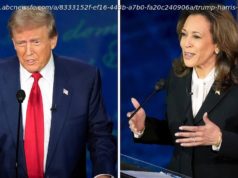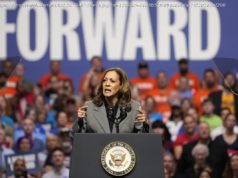Surging interest rates are intensifying the challenges for the U.S. economy and threatening to derail the Federal Reserve’s drive to tame inflation without causing a deep recession
Surging interest rates are intensifying the challenges for the U.S. economy and threatening to derail the Federal Reserve’s drive to tame inflation without causing a deep recession.
Since mid-summer, the yield on the 10-year Treasury note, a benchmark for many loans, has steadily climbed, causing a spillover rise in other borrowing costs. The costs of mortgages, auto loans and credit card debt have all risen in response. The collective impact of higher rates across the economy could also weaken the government’s own finances.
The jump in longer-term rates coincides with other threats, from higher gas prices and this week’s resumption of student loan payments to autoworkers’ ongoing strike and the risk of a government shutdown next month, all of which could leave consumers with less money to spend to power the economy.
The strike by the United Auto Workers, now in its third week with no resolution in sight, could reduce vehicle sales in coming months. And the threat of a government shutdown, narrowly averted this past weekend, looms large, especially given the chaos over the leadership of the House of Representatives. Far-right Republican House members deposed their leader, Rep. Kevin McCarthy, on Tuesday for working with Democrats to temporarily avoid a shutdown.
The economy is coming off a robust summer, fueled by strong consumer spending on travel, concert tours and movie blockbusters. The economy is estimated to have grown at a healthy 3.5% annual rate in the July-September quarter, according to economists at Goldman Sachs.
Yet growth will likely slow to a meager 0.7% annual rate in the final three months of the year, Goldman estimates. With borrowing rates high and inflation still relatively elevated, consumers, who drive about 70% of economic growth, are expected to spend more cautiously.
On Friday, the government will provide a snapshot of how employers are factoring the turmoil into their hiring plans when it issues the September jobs report.
Start
United States
USA — mix Rising long-term interest rates are posing the latest threat to a US...






